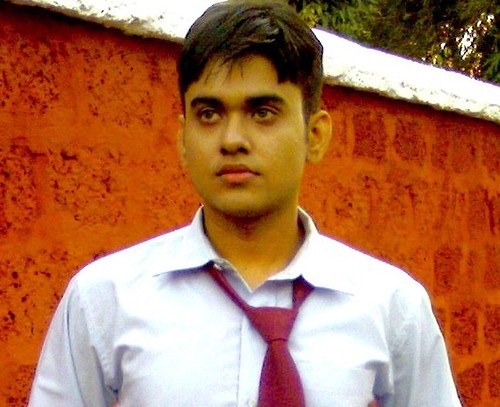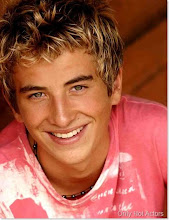When these frightful times of financial confusion and credit constipation become too much, I dial up Barack Obama on YouTube to suppress my anxieties. The Voice works like aerosolized Paxil on my limbic system, reducing my blood pressure and lifting my mood.
If this president thing doesn't work out for him, I'm sure Obama could make a living recording evacuation tapes for the airline industry: "The aircraft … in which you are seated … is falling … at a rate that Bernoulli's principle … can not overcome. … As we crash … into the tarmac … please remain calm … unbuckle your safety belts … and walk in an orderly fashion … to the marked exits … to deplane."
Obama smeared the American psyche with his oratorical ointment
Jan. 8 as he implored Congress to pass his stimulus plan, which he doesn't call a stimulus plan. That would sound too down. In the Obama version, it's the upbeat "American Recovery and Reinvestment Plan."
If you listen to the words, Obama promises a grim recession that "could linger for years," produce a double-digit unemployment rate, and destroy a "generation of potential and promise" if his package doesn't pass. But when I watched him in the video below, flanked by a pair of U.S. flags as if still campaigning for the job that he won two months ago, he made me feel oddly good about the challenges of coming economic Armageddon.
Say, I said to myself, how does he do that?
For one thing, he's better at remaining calmer and more deliberate in his speech patter than John Wayne in a firefight—and better at it than any politician since Ronald Reagan. If he's calm, I'm calm—even if my portfolio was last sighted burning its way to the bottom of the Bentley Subglacial Trench.
Adopting a slightly scolding tone in today's speech without accusing anybody by name, he blamed such abstract scourges as corporate boardrooms, Wall Street, banks, "the halls of power in Washington, D.C.," and borrowers who took out loans they couldn't repay for the crisis. But like a dad who is tough-loving his wayward children back in line, he calls on us to "trade old habits for a new spirit of responsibility." Yes, we can be redeemed! Painting a sunshine-and-lollipop vista of fuel-efficient cars, high-quality health care, better schools, "new discoveries and entire new industries," a smart electric grid, and job security for cops and firefighters has a way of accentuating gain over pain.
Avoiding talk about pain is one of his secrets. If there is a downside to Obama's "Recovery and Reinvestment"—or even a chance the Recovery and Reinvestment scheme won't work—he shares not a peep. How much will this Recovery and Reinvestment operation cost? Obama wisely avoids putting a price tag on it. But, again, it's not what Obama says that narcotizes the citizenry, but the way he says it. He can't possibly be certain that his plan will work, but he sells it as a done, settled deal, never showing a speck of doubt.
Related in Slate
During the 2008 campaign, Jack Shafer attempted to
decode Obama's rhetoric and
explained why nothing the press throws at him sticks.
Continuity and this sort of "settledness" was a hallmark of Obama's campaign, and that strategy has evolved during the post-election period. At the exceedingly short press conferences that follow the introduction of some new administration hire, Obama often answers by saying he's answered that question before. Asked about the Iranian bomb on
Nov. 7, he said, "Let me state—repeat what I stated during the course of the campaign." "Well, let me repeat a couple of things," he said on
Dec. 11 when asked about Gov. Blagojevich's contact with his staff. When that didn't shake the reporters, he repeated his repetition. "In terms of our involvement, I'll repeat what I said earlier, which is I had no contact with the governor's office."
Here are a few more examples of Obama's thanks-for-that-redundant-question response:
"But as I have said consistently, I will listen to the recommendations of my commanders."—
Dec. 1"As I said throughout the campaign, I will be giving Secretary Gates and our military a new mission as soon as I take office—responsibly ending the war in Iraq through a successful transition to Iraqi control."—
Dec. 1"Well, keep in mind what I said during the campaign. And you were there most of the time."—
Dec. 11"As I have said repeatedly, I believe our government should provide short-term assistance to the auto industry to avoid a collapse."—
Dec. 11"With respect to the moratorium on off-shore drilling, what I said during the campaign was that I was open to the idea of off-shore drilling."—
Dec. 15 [Emphasis added.]
On the page, these Obamaisms read a little snotty, but on the tube, he sounds like a confidence-inspiring paragon of consistency: Everything is under control. All contingencies have been considered. The ship is sailing straight and true. The Obama pacification express slows, however, when the press corps refuses to let him determine when an issue is "settled," as happened at a March press conference. As this
clip illustrates, the Tony Rezko controversy wasn't going to disappear just because Obama thought his answers had vanquished it. "Come on, guys, I answered, like, eight questions. We're running late," Obama said as he retreated. It so shattered my vision of Obama that my acid reflux was out of control for a week.
Another way Obama stills the turbulent waters is by extolling bipartisanship, his old "there is no red-state America, there is no blue-state America" shtick. "American's security is not a
partisan issue," he recently said. "I know we will succeed if we put aside
partisanship and politics and work together as one nation. … I'm calling on all Americans—Democrats and Republicans—to put good ideas ahead of the old ideological battles, a sense of common purpose above the same narrow
partisanship."
Obama's endless hunt for common ground, his desire to bring Kumbaya moments to all, endears him to the multitudes. He's willing to work with everybody from the Republicans to Mahmoud Ahmadinejad and even the Rev. Rick Warren, whom he has tapped to give a prayer at his inauguration.
Defending his Warren invitation, which angered some gays and lesbians, Obama uncorked his stock explanation that we must be willing to "disagree without being disagreeable."
According to the Chicago Tribune (Aug. 4, 2004), Obama borrowed the disagree/disagreeable trope from Sen. Paul Simon, who pinched it from "three dozen self-help books." I always blanch when Obama uses this construction because it deliberately marginalizes the views of anybody unwilling to match Obama's temperament—which is to say the rest of the planet. And I don't know which is more damning—the fact that Obama's cliché was plucked from a self-help book or that so many bobble-head in agreement whenever he uses it.
"One of the keys to being well liked in Washington is to appear humble, which is why Washington is so full of people who are so unhumble when it comes to touting how humble they are. All of this comes naturally to Obama," Mark Leibovich
wrote four years ago in an Obama profile for the Washington Post.
If I understand Leibovich correctly—and I think I do—we like Obama because he's likable, and he's likable because 1) he knows how to be likable, and 2) he wants to be likable. Barack Obama, the ocean that refuses no river, will remain everybody's best friend until he makes his first tough decision. Only then shall we really begin to know him.




